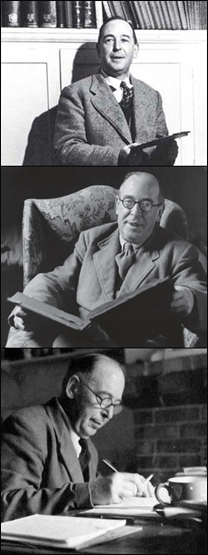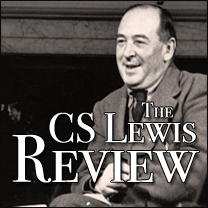
How Can We Live with Our Past?
March 30th, 2010 | Skip to comments
 INTRODUCTION: What is the relationship of the saved person to his or her past? How do the deeds, events, circumstances, blessings, cursings, sins, preferences, habits, etc. of our past lives, and those of our families, impinge upon and affect the present and our daily lives? Upon what can we blame failure, sickness, or unconquered sin? To what can we attribute success, health, and fruitfulness?
INTRODUCTION: What is the relationship of the saved person to his or her past? How do the deeds, events, circumstances, blessings, cursings, sins, preferences, habits, etc. of our past lives, and those of our families, impinge upon and affect the present and our daily lives? Upon what can we blame failure, sickness, or unconquered sin? To what can we attribute success, health, and fruitfulness?
In trying to answer these questions for myself, I have reconsidered some larger, perhaps even more crucial questions to answer on the way to answering these other pressing questions. Consider this post a progress report on the ways in which one brother has tried to grapple seriously and reverently with the task of maintaining a pure heart in the midst of a fallen world and a fallible church.
THE BIBLE AND THE PAST. The surprising truth, as I discern it in my search for answers, is that the Bible doesn’t encourage us to dwell upon and continually search the past for answers to present problems—except as the process helps us understand God’s sovereignty and faithfulness (Eccl. 7:10; Rom. 15:4; Phil. 3:12-14). Many of the psalms are explicit declarations of the acts of God done on behalf of His people, but surprisingly silent on the specific deeds or misdeeds of His people. God expects, yea demands, confession of sin—but his references are consistently to to acts and heart problems that are discernible, not deeply hidden in the lives of His people. We sometimes treat sin as a deep mystery but perhaps its very concreteness and nameable presence is the key; it is neither conspiratorial nor conceptually vague. When Jesus confronted sinners, in his compassion, he was very straightforward. This lust, that lie, those prideful acts. It’s not buried. And we know it when it is named. It isn’t karma, it’s daily bread we must consume, daily confession.
Further, we must consider that whatever questions we would ask about the past can be just as easily asked about the present—and the future. If there are mysterious, undetected, or relevant details of our past that account for current status and behavior and which must be unearthed and dealt with in a specific, confessional or prophetic way–it stands to reason that there must also continue to be similar factors in the here and now, hence potentially portending a rather endless chase after specifics, an infinite regress of personal anecdotes and incidents if you will, before enough insight, foresight, or postsight in achieved to make our lives sensible and directable by the Spirit. Is the remedy worse than the purported disease?
FINDING THE RIGHT METAPHOR. Consider this question: what metaphor should we use to describe our lives before God? Are they jigsaw puzzles or mosaics whose pieces we must assemble or force-fit in order to progress in the paths of righteousness? Are they caves or mine-fields that daily present us with new or fresh reminders of a sinful past that must be conquered? Or are they tapestries, whose choices and circumstances are woven into a whole cloth by God, outside of time and space (Gen. 49-50)? Am I to think of my life, in moment by moment terms, as an ebb and flow of influences and happenstances that I can neither fully discern nor ultimately control, or am I to view myself as utterly and always in the hands of a God who is completely aware of my state and needs, and who therefore directs my steps? Is it either/or?
The affluent West has had the leisure—as well as the money and time—to pause and wallow in introspection and indulgent personality analysis among paid professionals in a way the first century (and today’s Developing World) believers did not. How much of our struggle with trial or favor is borne out of our cozy life circumstances and not merely our supernatural battles with a devious enemy?
RIGHTLY DIVIDING THE WORD. Sometimes our viewpoints are distorted by the suddenness or anxiousness of a particular trial. But the word exhorts to rightly divide it, i.e., have a proper, global perspective on what applies and what doesn’t in each era and area of our lives (2 Tim. 2:15). Among the things this means is that we need to discern differences in the way God responds to His people in the Old and the New Covenant ages—and, crucially, the differences between living before and after the cross, and before and after Pentecost. My desire here is not to oversimplify, but to provoke thought, and, more than thought, to provoke prayer and wrestling with some eternal principles and corporate issues that help dictate how we relate to each other and to God in this age and the age to come.
GOAL: UNDERSTANDING THE WILL OF GOD. When all is said and done, we want to understand what the will of God is (Eph. 5:17; Rom. 12:1-2) and we wish to walk in harmony with those principles. Covenantal theology–as compared with even typical evangelical theology or, especially, charismatic theology—posits that God relates to His people—and to creation at large—by means of covenant, of contracted relationships. He will act in certain ways toward us if we act in certain ways toward Him. He will be faithful to His commitment, even when we are not. Covenant theology also projects certain boundaries in how we are to use and respond to the Old Testament Scriptures, specifically how much and in what ways promises, prophecies, laws, and exhortations addressed to the people of Israel have a direct reference and relationship to the New Testament church.
If this is true, we must not be whimsical with Scripture; context must be honored. To fail to see this is to sentence oneself to frustration in understanding the themes and application of the Bible to our lives individually and corporately. It is not saying too much to say the whole purpose of the Book of Hebrews–and a secondary but important purpose of the Letters to Rome and Galatia by Paul–is to address this very issue, admonishing the 1st century church to realize both the continuities and the discontinuities between the Old and New Covenants.
THE THEME OF THE NT. The pervasive theme of the Gospels and Epistles is that the Law was a shadow and Jesus was the fulfillment of both ceremonial and legal aspects of that covenant. There is a sense in which no Gentile then or now has ever been under the Law of Moses and it is a serious mistake to think that re-instituting, as such, any part of the Old Covenant can be of particular benefit or direction except as a testimony to the character and faithfulness of God. Paul goes so far as to say that those who would attempt to “keep the law” indeed invite a curse upon themselves, a curse from which they have been redeemed by the cross of Christ (Gal. 3:10-25). The exhortation of every NT writer is to trust only and always in His finished work on the cross (1 Cor. 2:2); in Him our weakness is strength, our unworthiness His righteousness (2 Cor. 5:16-21; Rom. 8; Heb. 10:32-34).
THE CRUCIBLE OF LIFE. Ultimately, our questions, though they begin in the crucible, the give and take, of everyday life, find their answers related to the larger framework or worldview with which we interpret our experience, that is, the Bible, and each other’s words and deeds. We interpret the incidental in light of our more basic principles; that can be good or bad. Most theological disagreement can be traced back not so much to different interpretations of specific passages in Scripture, but to different expectations and views of God that accompany the believer to the Scriptures and help determine even what is seen there.
Someone has defined interpretation as inserting information or texts into conversations that are already in progress. The conversation can be interrupted, stopped temporarily, put on an entirely different course, and so on, depending upon the operating premises among the conversationalists and what “new” information, people, circumstances bring to the setting of the conversation. What I would like to do here is to ask for just such a pause in a certain conversation and raise topics of mutual concern, interest, and poignancy, and then see where the conversation might lead us. . .
SOME PREMISES:
- • God is consistent with his character and purposes in history, even when we cannot discern that fact (Heb. 13:5-8).
- • We are not always in the best position to judge whether our own motives, angles of interpretation and application, and relationships among brethren are congruent with the covenant we have made with God and through God to each other as revealed in Scripture (2 Tim. 2:1; 1 Tim. 6:3-5).
- • The Old Covenant was a *schoolmaster* to bring us to Christ and it is His finished work that is all-sufficient in redeeming, and sanctifying us before God and defeating the enemy (Gal. 3:10-25).
- • The Scriptures are in and of themselves God’s training manual for discipling, counseling, and disciplining the church—and individual believers and must be relied upon for guidance in all matters of faith and practice (2 Tim. 3:16).
CONCLUSION. Our past is of moment or import to us only insofar as we reflect upon and praise God for His hand in our lives. We are not charged with identifying and explicitly uprooting the moment by moment details of our lives in order to be whole, healthy, or saved–such, were it true, would be a worse legalism than any confronted by Jesus in the gospels or Paul in the epistles. Patterns, sins, syndromes: God–through the finished work of Jesus–can break down any hindrance to our faith and fruitfulness (1 Cor. 6:11-12). Further, Romans 8, 2 Cor. 4, and Hebrews 11 declare some fundamental facts about the universe after the Fall: we all wait, groan, sigh, and anticipate the coming redemption, full and complete.
It will not come–excepting in the return of the Lord in our lifetimes–within the boundaries of earth and time. What every champion of faith in Heb. 11 has in common is that *they died and received not the things promised* (13-16). We share their lot.
All of our expectations, therefore, must be adjusted, not because our God has not promised great things, but because the time and place for the revelation and restoration of those things earnestly hoped for has not yet arrived.
We must adjust our means of interpreting experience so that it *rightly divides the word of truth*; and we must adjust of means of interpreting the Bible so that it accurate discerns and applies the distinctions between covenants and eras under the reign of Jesus.




Comments
No comments yet.
RSS feed for comments on this post.
Sorry, the comment form is closed at this time.